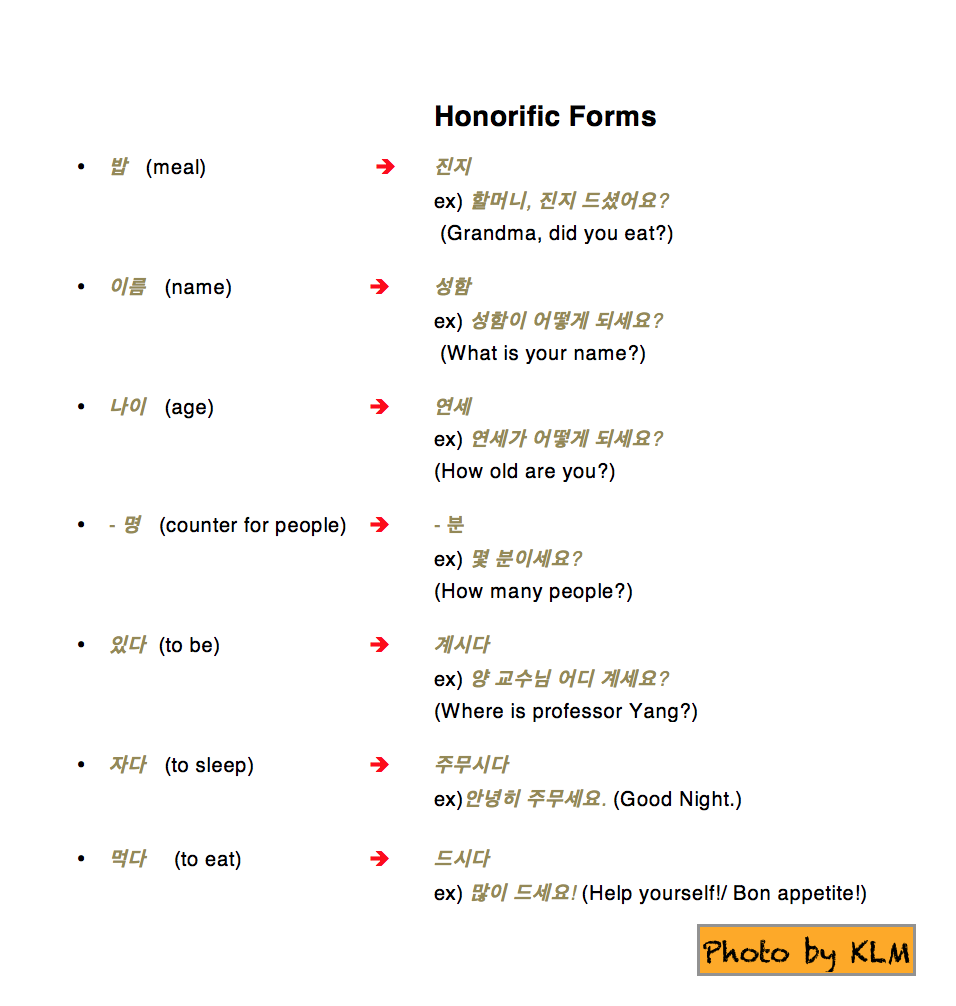The Essential Honorific Words in Korean Posted by Kyung-Hwa on Nov 29, 2017 in Korean Language, Vocabulary
How familiar are you with honorific words in Korean? By incorporating honorific words in your Korean speaking, you will be able to demonstrate your consideration to your listeners in a highly respectful way.
Referring back to these two posts, “Formal or Informal?” and “How to Greet & Say Goodbye Like a Korean”, Korean language has several different levels of speech patterns that show respect to others: depending on the speakers’ ages, societal statues, or circumstances. Besides different speech patterns, there is another way to show your listeners that they are highly respected in Korean. At times, you will hear others around you who use honorific expressions towards you as well, especially when you are a customer at a restaurant and a store. Therefore, becoming familiar with a list of honorific vocabulary in Korean will be helpful to minimize your guesswork in the future and to build fluency in Korean.
The following is widely used honorific vocabulary in Korean that will become a good reference to you in the future:
The above is a short list of honorific vocabulary, but these words are frequently used in Korean. When you listen to someone speaking or watch Korean dramas next time, you might be able to recognize one of these words and understand what it means within the context.
감사합니다! (Thank you!)
***Related Vocabulary***
- 밥 (meal) ⇒ 진지
ex) 할머니, 진지 드셨어요?
(Grandma, did you eat?)
- 이름 (name) ⇒ 성함
ex) 성함이 어떻게 되세요?
(What is your name?)
- 나이 (age) ⇒ 연세
ex) 연세가 어떻게 되세요?
(How old are you?)
- – 명 (counter for people) ⇒ – 분
ex) 몇 분이세요?
(How many people?)
- 있다 (to be) ⇒ 계시다
ex) 양 교수님 어디 계세요?
(Where is professor Yang?)
- 자다 (to sleep) ⇒ 주무시다
ex)안녕히 주무세요.
(Good Night.)
- 먹다 (to eat) ⇒ 드시다
ex) 많이 드세요!
(Help yourself!/ Bon appetite!)

Build vocabulary, practice pronunciation, and more with Transparent Language Online. Available anytime, anywhere, on any device.




